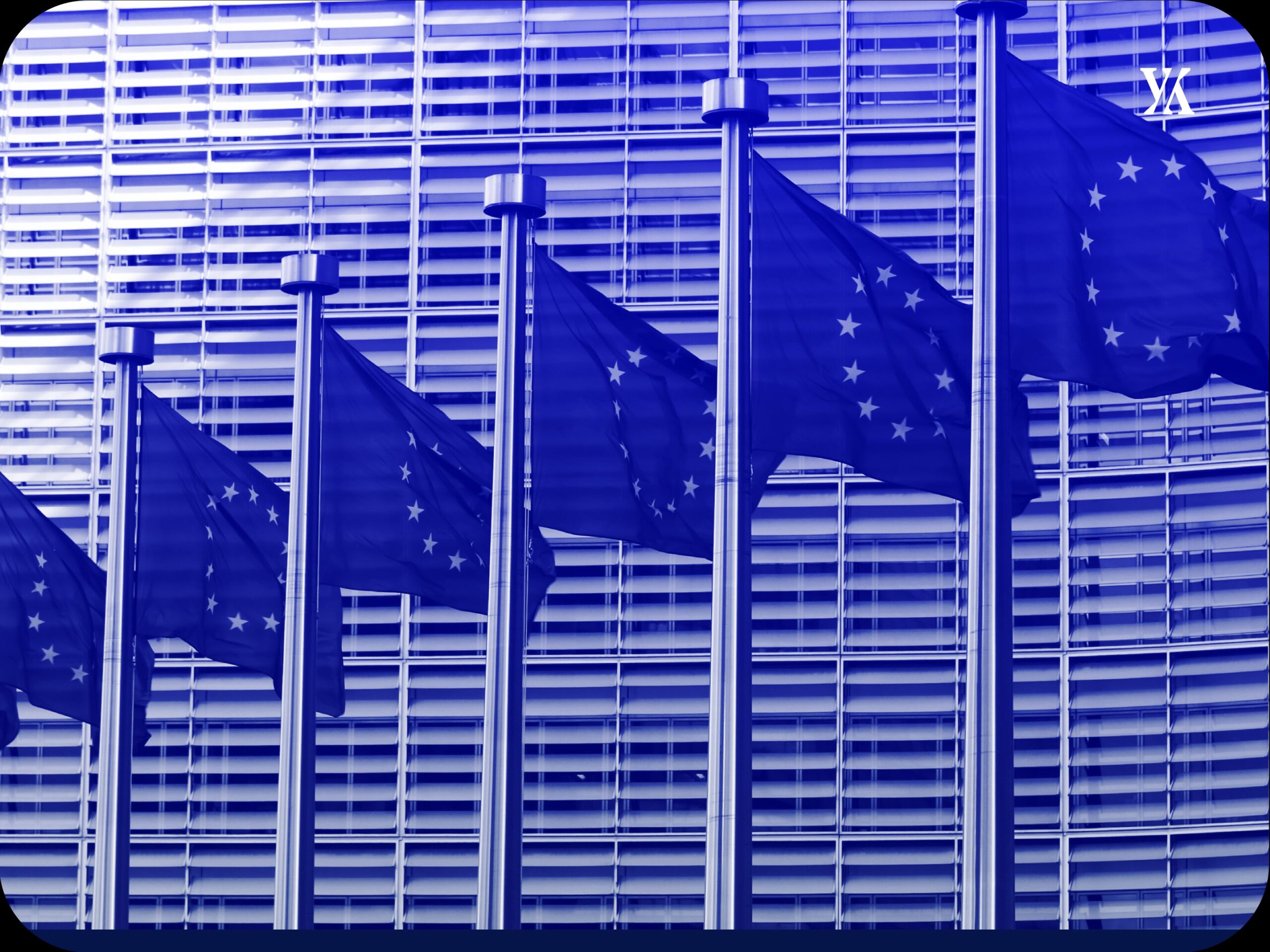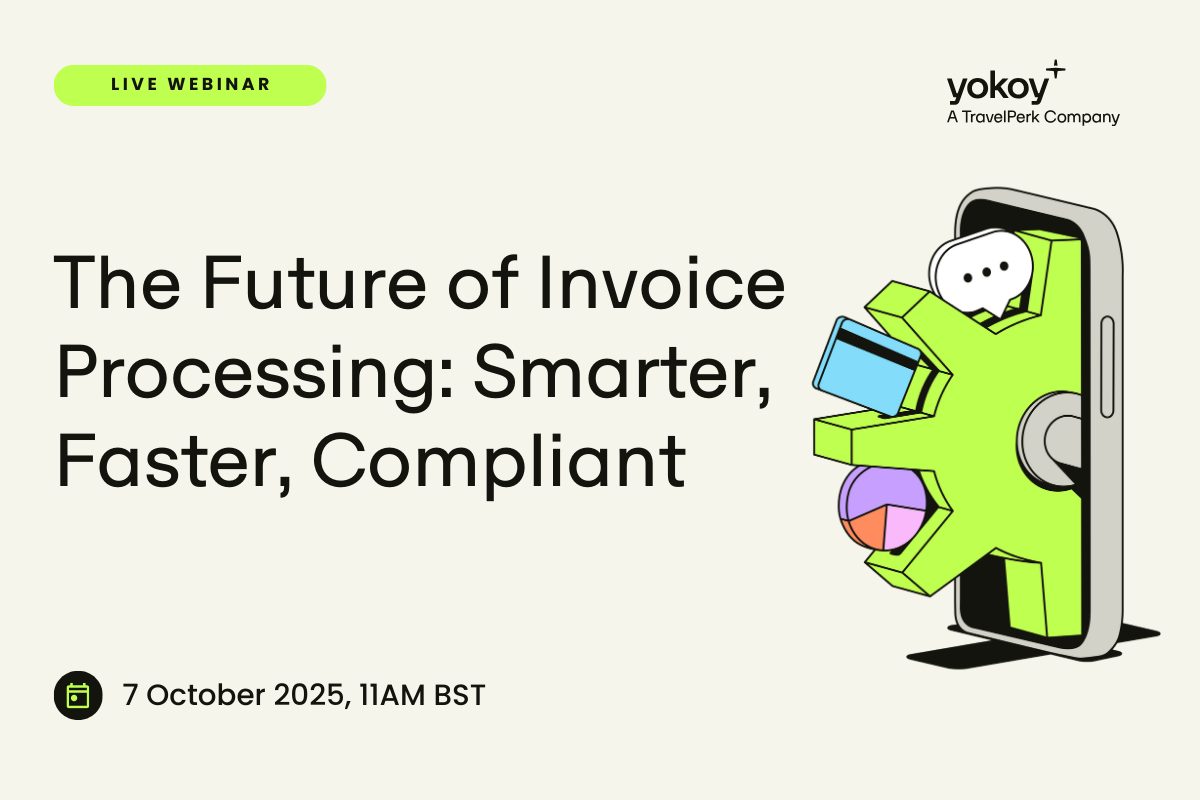Home / The EU Directive on E-Invoicing – Everything You Need to Know
The EU Directive on E-Invoicing – Everything You Need to Know
- Last updated:
- Blog

As you may know already, the European Commission issued the EU Directive 2014/55/EU, which mandates using a standardised electronic invoicing format for all public procurement processes across EU member states. This essential piece of legislation ensures interoperability and simplifies cross-border transactions in the digital age, significantly impacting any business-to-government interaction throughout Europe by requiring them to adopt and process e-invoices that conform to the European standard.
Non-EU businesses interacting with public administrations in the EU or aiming to align with global best practices in their B2B transactions may find adopting the EU’s e-invoicing standards advantageous or necessary. And rest assured: Yokoy is here to support you all the way to streamline e-invoicing and enable your businesses to adapt and thrive even with more complex sounding regulations.
Directive 2014/55/EU on electronic invoicing
Directive 2014/55/EU is an initiative to advance electronic invoicing (e-invoicing). It mandates standardised e-invoicing for public procurement across the European Union, requiring all public sector entities to accept and process e-invoices conforming to the European standard (EN 16931). The directive aims to enhance efficiency, transparency, and cross-border interoperability.
As the European Commission states, the core elements of an electronic invoice are:
process and invoice identifiers,
the invoice period,
seller information,
buyer information,
payee information,
seller’s tax representative information,
contract reference,
delivery details,
payment instructions,
allowance or charge information,
invoice line item information,
invoice totals,
Value-added tax (VAT) breakdown.
The European Commission also clarified: “The benefits of electronic invoicing are maximised when the generation, sending, transmission, reception and processing of an invoice can be fully automated. For this reason, only machine-readable invoices which can be processed automatically and digitally by the recipient should be considered to be compliant with the European standard on electronic invoicing. A mere image file should not be considered to be an electronic invoice for the purpose of this Directive.“
Good to know: PEPPOL, the Pan-European Public Procurement Online network, enables businesses and public entities in the EU to efficiently exchange electronic documents, including e-invoices, following the standards set by the EU directive.
In member states like Germany, Italy, Spain, Poland, Portugal, Belgium, and France, businesses must comply with EU standards by adopting e-invoicing systems. This compliance enhances operational efficiency and facilitates better cash flow management. It simplifies cross-border trade within the EU and drives digital transformation. Public procurement processes benefit from reduced costs and improved transparency, making taxpayers happy and strengthening provider relationships due to quicker payment cycles.
Ultimately, the directive promotes a more competitive economic environment and prepares us all for the digital age across EU countries. So whether you are doing business with German, French, or any other European companies, you’ll need to know the regulations around e-invoicing.
Already, every enterprise must ensure its invoicing systems are compatible with European standards to engage in public procurement across EU member states, and soon that will extend to business-to-business procurement outside the public sector, too.
This may require updates to software and invoicing processes to meet the technical specifications of the European standard.
The benefits of e-invoicing
This directive and e-invoicing in general should not make you lose sleep: It even offers several compelling benefits that extend beyond regulatory compliance, so it is a worthwhile consideration for businesses even when not (yet) mandated:
Structured electronic data streamlines invoicing processes: E-invoicing automates invoice creation, transmission, and processing using standardised digital formats like XML (Extensible Markup Language). This structured approach reduces the time and effort spent on manual tasks, streamlining the entire invoicing cycle.
Improves cash flow: Faster invoice processing and reduced payment delays improve cash flow management. Your business will receive payments more promptly and smoother invoice management will enhance liquidity and overall financial stability.
Reduces possibilities for human errors, fraud, and financial losses: Automated data entry and validation minimise human errors associated with manual invoicing processes. Additionally, e-invoicing systems incorporate security features that reduce the risk of fraud, ensuring financial integrity and preventing monetary losses.
Provides real-time data insights: E-invoicing systems generate real-time data on invoicing activities, allowing businesses to track invoice status, payment trends, and outstanding balances. These insights enable proactive decision-making and better financial planning.
Ensures secure data exchange for high compliance: E-invoicing platforms adhere to stringent data security standards. This allows for a safe exchange of sensitive financial information. Compliance with data protection regulations is maintained, fostering trust and confidence among customers and stakeholders.
How to prepare for the EU directive on e-invoicing
Preparing for the EU Directive 2014/55/EU requires companies in the EU to adopt e-invoicing solutions that comply with the EN 16931 standard. Ideally, companies should integrate them into holistic spend management systems to optimise financial processes, reduce the risk of non-compliance, and enhance transparency and efficiency in transactions.
From our experience, prioritising innovative and AI-powered automation features, data security, scalability, flexibility, and provider collaboration are also crucial factors for successful implementation and long-term readiness. These features can ensure streamlined processes, meet digital reporting requirements, and protect your business’s sensitive financial data. They also enable companies to optimise productivity, adapt to growth, and maintain data integrity effectively.
EU Directive 2014/55/EU means mandatory e-invoicing and adoption for public sector entities, necessitating compliance with the EN 16931 standard. This European standard defines a semantic data model and syntax for e-invoices, ensuring interoperability.
Yokoy is more than the e-invoicing solution on the Directive 2014/55/EU
At Yokoy, we are constantly working on even better ways to simplify your invoice management. Therefore, our powerful solution facilitates compliance with the EU Directive 2014/55/EU by enabling your business to process invoices in the mandated EN 16931 standard. Automated compliance checks ensure accuracy and adherence to regulatory requirements at all times, while integration with ERP systems streamlines invoicing processes without disrupting your team’s existing workflows.
Another topic Yokoy truly cares about is data security. We prioritise it through robust encryption and safe data handling practices, ensuring the confidentiality of financial information exchanged during invoicing. Continuous updates and dedicated support further assist your company in navigating regulatory complexities, enhancing overall efficiency and reliability in e-invoicing operations.
Yokoy as a holistic spend management solution
Of course, we don’t stop there – Yokoy’s solution goes beyond compliance with the EU Directive 2014/55/EU and other legislation, as we also offer many other business benefits:
Operational efficiency: With Yokoy, you can automate the entire invoicing process, from verifying invoices to approving them and authorising them for payment. This automation reduces manual work and speeds up invoice processing, allowing finance teams to focus on strategic tasks.
Cost savings: By streamlining invoicing processes, the system helps businesses save on administrative costs associated with manual data entry, errors, and late payments. Improved efficiency also speeds up payment cycles, improving cash flow management.
Data-driven insights: Yokoy’s solution provides real-time visibility into financial transactions and expenses. It offers detailed analytics and reporting features that provide actionable insights, enabling businesses to make informed decisions and optimise spending patterns.
Integration capabilities: The system integrates smoothly with existing ERP, accounting, and HR systems, ensuring seamless data flow across platforms. This integration enhances workflow efficiency and simplifies managing multiple systems.
Comprehensive spend management: Yokoy’s solution includes tools for managing expenses, processing travel reimbursements, and handling corporate cards. This holistic approach enhances transparency and control over corporate expenditures.
Scalability and flexibility: Operating on a scalable cloud-based platform, Yokoy’s system can grow with your business, handling increasing transaction volumes and adapting to evolving operational needs. Its flexible architecture allows customisation to meet specific business requirements and workflows.
Compliance and security: The system complies with stringent data security standards, safeguarding sensitive financial information and ensuring adherence to regulatory requirements. This focus on security instils confidence among users and stakeholders.
User-friendly interface: The solution’s intuitive interface and mobile accessibility make it simple for your employees to submit expenses and manage invoices from anywhere. This ease of use enhances user adoption and overall productivity.
Yokoy’s powerful solution is more than just compliance with regulations. It can be your strategic asset that transforms operations, cuts costs, and delivers vital insights, all while ensuring top-notch security and scalability. If you are considering embracing the future of spend management, Yokoy will be by your side – making sure your organisation can reach its full potential in terms of efficiency and effectiveness.
Next steps
Do you wish your company had started adapting the EU Directive earlier? Don’t worry, it is never too late to change your invoice management process. Explore Yokoy’s transformative capabilities in financial operations, aligned with the EU Directive 2014/55/EU. Discover how Yokoy’s holistic platform can help you automate invoicing, manage your expenses, and analyse your data to be more compliant and boost efficiency. We are confident that you will love the positive impact Yokoy can have on your business.
Simplify your invoice management
Related content
If you enjoyed this article, you might find the resources below useful.


